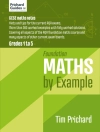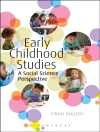This book is designed as a text for teacher education graduate programs, as well as a resource for school administrators and researchers and provides a global perspective to the current issues related to teacher dispositions, their place in teacher education programs, and impact on education reform around the world. Drawing from researchers around the globe, the text provides a comprehensive examination of the theoretical aspects of dispositions in education, including discussions on the social-cognitive perspectives in dispositional development and the pedagogical practices used in conjunction with teacher dispositions. Practices for assessing teacher dispositions will be included, focusing on methodologies for instrument development and the challenges of language and meaning when constructing items to assess dispositions. The text also includes a discussion of the virtual/online classroom and how teacher dispositions are influencing teacher and student relationships. Thesetopics are explored from a global perspective with special emphasis on how the awareness of teacher dispositions and their role in the classroom are making transformative changes to teacher education programs, educational practices, and student outcomes around the world.
Part 1 provides a descriptive, progressive narrative of dispositions in teacher education including social and cognitive theories in dispositional development, assessment of dispositions, and the role of dispositions in teacher preparation and teacher program certification. Part 2 takes the reader around the globe as scholars from around the world provide insight into how teacher dispositions impact teaching and learning from Finland to Japan and points in between. The chapters highlight case studies and research related to teacher dispositions from traditional and alternative teacher certification program, as well as online classrooms. Part 3 concludes with a discussion on the global and intercultural connection as related to teaching dispositions.
Cuprins
Preface.- Part 1: Dispositional Development.- The Development of a Disposition for Reflective Practice.- Pre-Service Elementary Teacher Dispositions and Responsive Pedagogical Patterns in Mathematics.- The Myers-Goodboy/DOK Approach to Positive Disposition through Feedback Training in Preservice Teacher Education.- Part 2: Regional Perspectives.- Professional Teaching Dispositions: Perspectives from North Africa.- Teaching in the Graveyard: Japanese as a Second Language Teachers (JSL) in Japan.- Examining the Validity and Reliability for a Measurement Model of the Malaysian Teacher Disposition Index (MTDI).- Virtual Teaching Dispositions among Teachers with and without Victimization Experiences in Estonia.- Teacher Dispositions as Bridges for Active Learning in a Nordic Higher Education Context.- The Development and Validation of the Abu Dhabi Professional Teaching Disposition Scale.- Teachers Dispositions Towards Professional Development within the United Arab Emirates: Relations to Teacher Job Satisfaction.- Part 3: Global Perspectives.- Culturally Responsive Pedagogy in Early Childhood Classrooms: Intentional Intercultural Exchanges Matter.- Teachers’ Intercultural Competence as Part of Global Competence.- Index.












